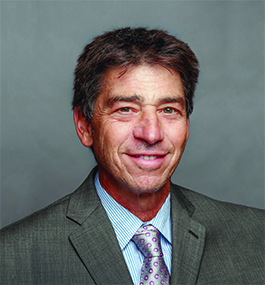Answering All the Questions

Marc Rothenberg ’83
Science is humbling, says Marc Rothenberg ’83: “The more my research has uncovered, the more it becomes apparent how much I still don’t understand.”
Rothenberg heads the allergy and immunology division at Cincinnati Children’s Hospital, one of the top-ranked pediatric teaching hospitals in the U.S. “Allergies are a growing problem,” he says. “Not only do allergies affect a staggering one-third of the Western population, but their severity and spectrum are continuing to increase.”
He wants to know why. So he’s exploring fundamental questions about the mechanisms of allergic responses, directing a lab that combines basic science with translational research and clinical studies.
Focusing on a white blood cell type called eosinophils, Rothenberg and his team of researchers have mapped out the molecular pathways of allergic inflammation, an “unfathomable” feat when he started in the field, he says. His findings are guiding clinical practice and helping people live better lives, including patients suffering from asthma and other allergic inflammatory diseases.
He’s participated in the development of several drugs that have secured FDA approval for the treatment of allergic diseases, especially a set of emerging diseases called eosinophilic gastrointestinal disorders (EGIDs), which he helped describe. “I dream of a day when we can reeducate the immune system to reverse the food hypersensitivity that drives EGIDs, and have those treatments be readily affordable and available,” he says.
Rothenberg learned to ask questions and think scientifically after he scored a coveted spot as an undergraduate research assistant in the lab of Brandeis biochemistry professor William Jencks, whose pioneering research focused on how enzymes facilitate chemical reactions. Jencks, whom Rothenberg calls “the most revered and renowned biochemist of his generation,” became his young student’s mentor and shaped his scientific approach, teaching him to consider and work through problems rather than simply memorize material.
After graduation, Rothenberg pursued an MD/PhD in immunology at Harvard Medical School, kicking off 17 years of training that included a pediatric residency at Boston Children’s Hospital and a postdoc in genetics at Harvard.
Rothenberg was recently inducted into the National Academy of Medicine, one of the highest honors in health and medicine. “I am pleased to see my research advance the understanding and treatment of allergic diseases,” he says. “At the same time, I know we need to do much more.” He recalls an email of gratitude from a mother whose son had participated in one of his drug trials and was doing well on the therapy. Though touched by her comments, he never loses sight of the scope of the problem.
“Despite how much we know and what we do, there are still too many people suffering from the diseases researched in my laboratory,” he says. “My work is focused on the allergy epidemic. How proud can we be if we haven’t ended it yet?”
— Alexandra Stephens
